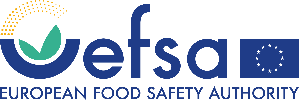EFSA Call for Expressions of Interest for External Experts in Working Groups - Environmental Risk Assessment for terrestrial non-target organisms
- 📁
- Science Professionals
- 📅
- EFSA/WG/ERA/2024/O1 Requisition #
- 📅
- Apr 22, 2024 Post Date
WORKING GROUP EXPERTS SELECTION
In order to express their interest, candidates should fill in and submit the online application form. The selection and appointment of Working Group experts follows EFSA’s standard operating procedure on Establishing, updating and closing a scientific Working Group. If additional expertise is needed, EFSA may also draw external experts from other relevant databases.
Experts shall demonstrate the following professional capacity:
i. Scientific assessment proven with the number of scientific assessments conducted in the fields of ERA of PPPs and/or non-target organisms (at least 3 in the last 10 years) and/or scientific excellence proven with the number of publications produced in the fields of ERA of PPPs and/or non-target organisms (at least 2 in the last 5 years);
ii. Scientific communication proven with experience in participating to scientific groups of experts at international/national level and/or in providing scientific communication at international/national level (lectures, public speeches, teaching to university students in the last 10 years).
Thorough knowledge of English language (written and spoken) is required for the position.
EFSA may contact pre-selected candidates for further assessment on their expertise and motivation and to check their availability. Please note that only pre-selected candidates will be contacted.
Declaration of Interest (DoI)
Suitable candidates identified as having the most appropriate expertise for the Working Groups shall be requested to submit a Declaration of Interests (DoI), which will be screened by EFSA in accordance with EFSA’s Independence policy[4]. In the absence of a Conflict of Interest (CoI)[5], candidates may be invited for Working Group membership.
Appointment
The decision on the appointment of the most suitable experts shall take into consideration the matching of the experts’ profiles with the scientific profile required for the specific scientific task in question, thorough knowledge of the English language, nationality and gender balance within the Working Group.
Members of the Working Groups are appointed in a personal capacity. They shall therefore not delegate their responsibilities to another member or to a third person. The appointment could be for the duration of a specific mandate or for a longer period. This pool of experts may be consulted also on ad hoc basis, as needed.
Should you have any queries please send an email to selection.experts@efsa.europa.eu.
[4] EFSA's independence policy is implemented by the rules laid down in the Decision on Competing Interest Management.
[5] A conflict of interest may arise e.g. where a candidate is employed by any legal or natural person carrying out any of the activities on which EFSA’s scientific outputs impact directly or indirectly, such as food production, processing and distribution, agriculture or animal husbandry.
